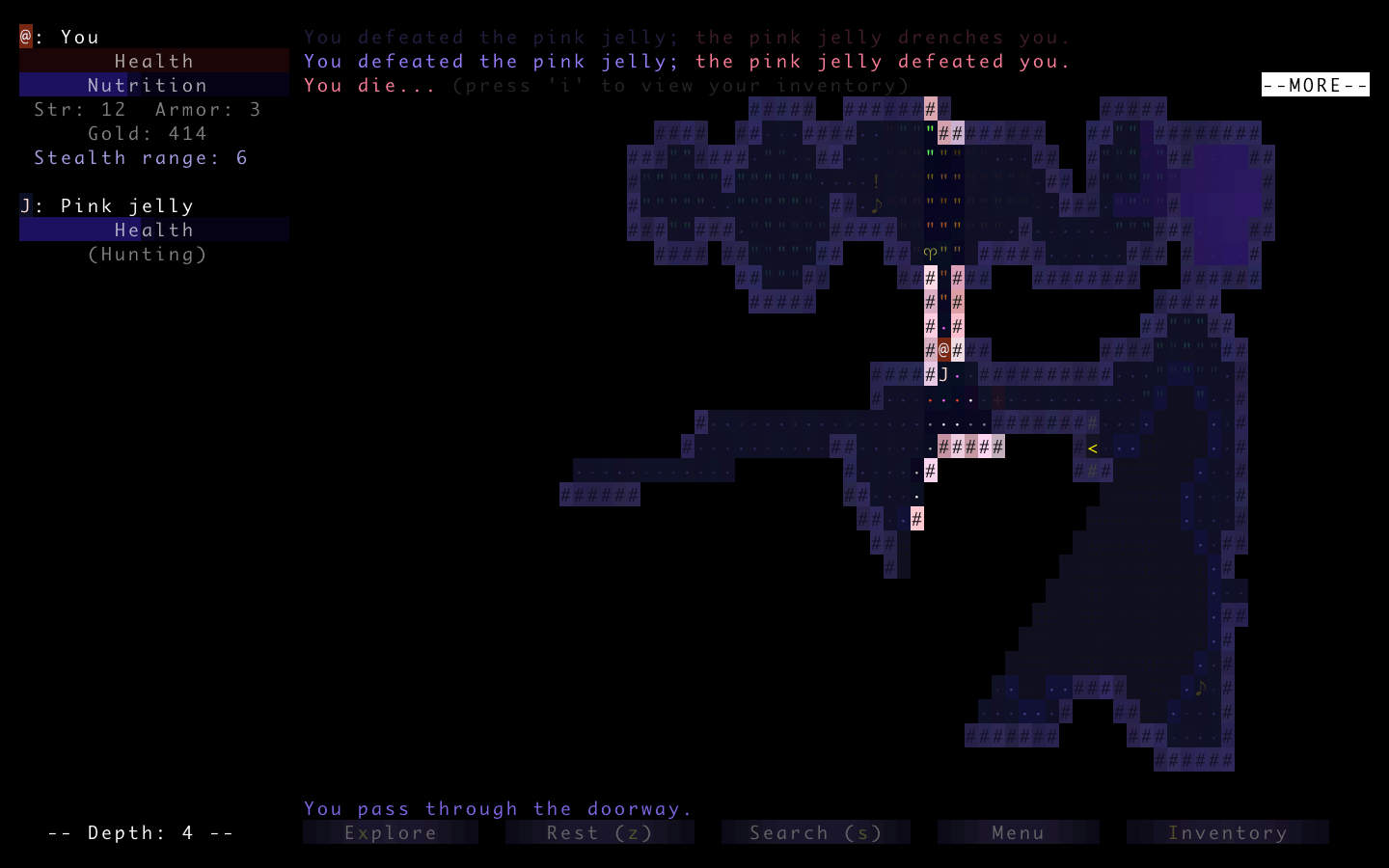@ Is for Adventurer: Brogue
What I love about Roguelikes are the endless exploration afforded by procedural dungeon generation, experimentation with tactics from all the magic items, and a learning curve to tease my intellect.

Brogue delivers all those in spades, an excellent example of a modern-day Roguelike that follows in the footsteps of Nethack, Angband, and of course Rogue. It includes the other hallmarks of a Roguelike: permanent character death and ASCII graphics, and just describing it makes me want to go play it. (I admit it. I did go play it.) What makes Brogue stand out is two things: It streamlined and simplified the often-complex Roguelike game, and it brought a modern UI sensibility to the genre.
Acknowledging the invention of the computer mouse is a big deal. You can play the entire game without touching the keyboard if you like, though I found I preferred a mix of keyboard and mouse control. It came in most handy for dealing with my inventory and for quick-traveling to places I'd already visited after clearing most of a level. That alone saved lots of time.
Additionally, the game makes wonderful use of color, displaying degree of enemy wounds, showing alarms and magical effects rush outward in a wash of color, and displaying your inevitable hallucinations in a brilliant technicolor.
The game is also kinder than many of its brethren. It will stop automoves and alert you when something changes, as well as asking you to confirm when you want to do something that sounds stupid, such as jump into a chasm or drink a potion of incineration.
Simplifying the game has done much more for Brogue than the UI modifications. There are fewer distinct magical items and monsters, and far fewer commands than in its Roguelike forebears. There are fewer options in general, starting with character generation: there is none. Every character begins identical. It's the equipment you choose later on as you explore that sets you apart, and equipment is the only way you advance your character:
Potions of strength make you stronger, potions of life give you more hit points, better equipment makes you hit harder or harder to hit, magic staffs and charms give you distinct powers, and scrolls of enchantment make your gear better. You don't earn experience points, and fighting monsters gets you nothing but pain.
This is simpler, and it opens up an opportunity to make the game about cleverness instead of might. Since there's no reason to fight, it's a viable strategy to sneak around monsters and avoid them as they wander the dungeon. In many games, including many Roguelikes, you have to fight enemies for experience points even if you'd rather ghost through a level. That discovery alone multiplied the length of my interest in Brogue by at least two.
I am interested in some additional complexity, because the limited number of magic items gets somewhat repetitive. At the same time, I'm far from mastering all the many uses of even this limited selection. I'd also like to see the interesting experimentation start earlier. Perhaps if every character started with a special power instead of having to search for a level or three to discover a neat tool.
You can download Brogue for free.



